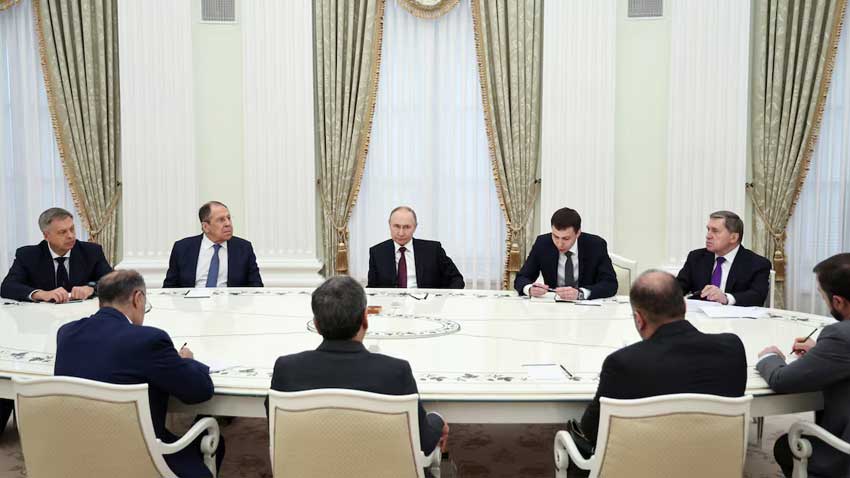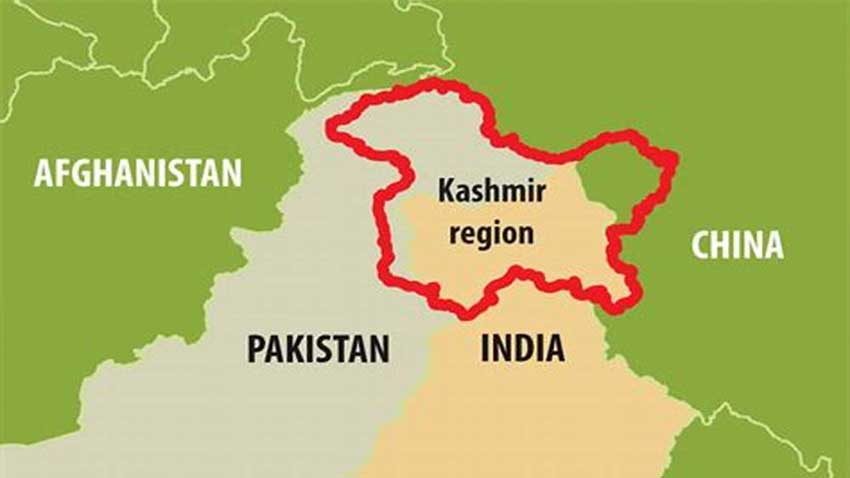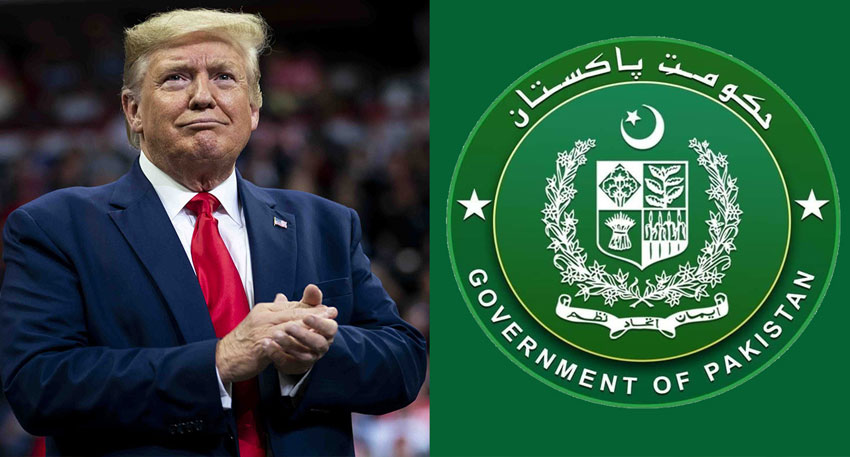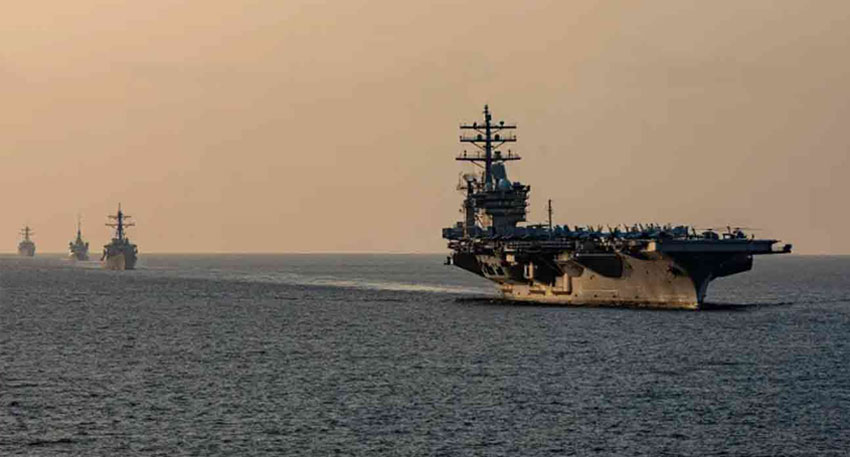
The Russian president also promised to try to help the Iranian people, although did not spell out how, Reuters reported.
U.S. President Donald Trump and Israel have publicly speculated about killing Supreme Leader Ayatollah Ali Khamenei and about regime change, steps Russia says could thrust the entire region into the abyss of a major war.
Putin received Iranian Foreign Minister Abbas Araqchi in the Kremlin alongside Russian Foreign Minister Sergei Lavrov, Kremlin foreign policy aide Yuri Ushakov and Igor Kostyukov, the head of Russia s GRU military intelligence agency.
"The absolutely unprovoked aggression against Iran has no basis and no justification," Putin told Araqchi, adding that he wanted to speak about ways to calm the crisis. "For our part, we are making efforts to assist the Iranian people."
Araqchi was due to deliver a letter from Khamenei to Putin, seeking more help from Russia, a senior source told Reuters. There was no confirmation of that from Moscow, though Araqchi passed on best wishes from Iran s supreme leader and president.
At a meeting later with advanced military recruits, Putin noted the escalation of the conflict in the Middle East and the involvement of powers from outside the region, though he did not mention the United States by name.
"Extra-regional powers are also being drawn into the conflict," Putin said. "All this brings the world to a very dangerous line."
Iran has not been impressed with Russia s support so far, Iranian sources told Reuters, and the country wants Putin to do more to back it against Israel and the United States. The sources did not elaborate on what assistance Tehran wanted.
STRATEGIC PARTNERSHIP
While Russia has bought weapons from Iran and signed a 20-year strategic partnership deal with Tehran earlier this year, the published accord does not contain a mutual defence clause.
Read more: ‘We will end this war’: Iran issues warning to ‘gambler’ Trump
Russian Deputy Foreign Minister Sergei Ryabkov, asked if Iran had requested military help, was quoted by state news agency RIA as saying: "We interact with Iran in many areas. It is clear that it would be irresponsible for me to disclose the content of the contacts that are being conducted, including today, given all the circumstances."
Ryabkov added that "our strategic partnership with Iran is unbreakable", and that Iran had the full right to defend itself.
Putin, whose army is fighting a major war of attrition in Ukraine, has shown little appetite for a confrontation with the U.S. over Iran just as Trump seeks to repair ties with Moscow.
Asked if the U.S. attack on Iran would affect the developing dialogue between Russia and the United States, Kremlin spokesman Dmitry Peskov replied: "These are separate processes."
Russia has also said it does not want Iran to develop an atomic bomb, a step that Moscow fears would trigger a nuclear arms race across the Middle East.
Iranian officials say they feel Russia has not done enough to support it, and that they feel betrayed by major powers such as Russia and China.
Russia intervened in the Syrian civil war in 2015 to support Iran s ally Bashar al-Assad, but as his enemies closed in on Damascus in late 2024 it refused to send troops or more air power as it considered the situation too dangerous, though it did grant Assad asylum when he was overthrown.
Inside Russia, there were calls for Moscow to come to the aid of Iran and provide it with the same support which Washington had given to Ukraine - including air defence systems, missiles and satellite intelligence.
At the U.N. Security Council on Sunday, Russia, China and Pakistan proposed the 15-member body adopt a resolution calling for an immediate and unconditional ceasefire in the Middle East after U.S. strikes.
Russia s U.N. Ambassador Vassily Nebenzia recalled former U.S. Secretary of State Colin Powell making the case at the U.N. Security Council in 2003 that Iraqi President Saddam Hussein constituted an imminent danger to the world because of the country s stockpiles of chemical and biological weapons.
"Again we re being asked to believe the U.S. s fairytales, to once again inflict suffering on millions of people living in the Middle East," Nebenzia said. "This cements our conviction that history has taught our U.S. colleagues nothing."




